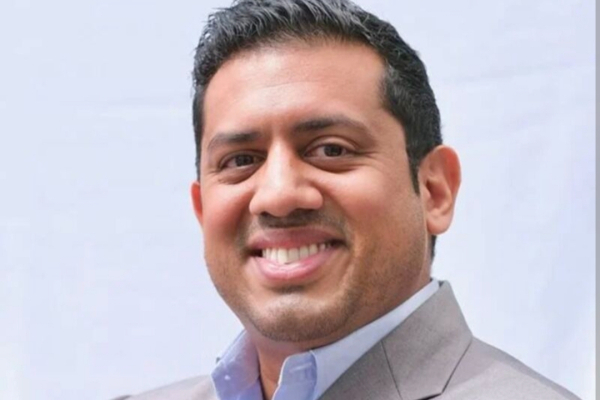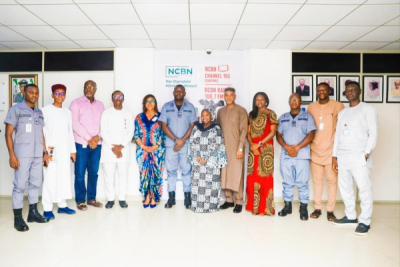A seasoned technology executive and entrepreneur, his venture RecoMed aims to improve healthcare access across Africa, with a specific focus on South Africa.
South African tech entrepreneur and business executive Sheraan Amod (photo) is the founder and chief executive officer of RecoMed, an online platform for booking medical appointments.
Launched in 2013, RecoMed provides a seamless connection between patients, healthcare practitioners, and other stakeholders in the healthcare industry. The platform allows patients to conveniently schedule medical consultations privately via their computers or mobile phones, offering access to a broad network of nearby healthcare providers.
RecoMed also connects healthcare providers with a diverse array of medical schemes, life insurers, websites, and other channels, thereby facilitating increased patient flow to their practices. Additionally, RecoMed enables patients to obtain and download prescriptions and locate the closest pharmacy.
The platform currently records over 100,000 bookings each month and attracts more than 200,000 monthly visitors. It boasts a network of over 3,000 registered and available practitioners.
Concurrently, Amod serves as the chairman of The Virtual Agent, a company that provides a data and client relationship management tool tailored for real estate agents in South Africa. His involvement with RecoMed builds upon a substantial prior entrepreneurial track record.
In 2004, he established Trafik Students Network, a marketing startup. Following this, in 2009, he launched Personera, a software platform integrating social media to promote personalized products and fan merchandise. In 2013, he founded Springlab, a technology company and investment firm.
Amod earned a bachelor's degree in computer science and electrical engineering from the University of Cape Town in 2007. He further obtained a master's degree in engineering management from Stellenbosch University in 2008. Between 2007 and 2009, he worked as a social media expert at DiploFoundation, an organization focused on international relations and diplomacy. From 2017 to 2020, he chaired En-novate, an immersion platform dedicated to fostering innovation.
He was honored with the Frost & Sullivan Innovation Award in 2017. In 2021, his startup RecoMed was recognized by the Yale Africa Startup Review as one of the 30 most innovative young companies in Africa.
By Melchior Koba,
Editing by Sèna D. B. de Sodji
An entrepreneur active in various ventures across Southern Africa, he aims to enhance the quality of road transport services via his platform, myRunner.
Zimbabwean entrepreneur Vusumuzi Mkhwananzi (pictured) is the co-founder and chief executive officer of myRunner, a tech firm focused on simplifying and enhancing the safety of bus travel.
Established in 2017 by Mkhwananzi, Josiah Mahachi, Millcent Mkhwananzi, Gift Chirinda, and Mandla Ncube, myRunner operates as a ticketing platform enabling users to book bus journeys across South Africa, Zimbabwe, and several other African nations at any time. The platform incorporates advanced features such as real-time bus tracking and fleet management tools for operators.
The startup also aims to streamline cross-border and domestic transport for small and medium-sized enterprises, providing a range of services including an electronic wallet, online marketplace, transport and freight brokerage, grocery delivery, and digital services. Additionally, it assists businesses in more effectively managing their online commercial activities.
Beyond his entrepreneurial ventures, Mkhwananzi serves on the board of directors for the Brussels-based operational center of Médecins Sans Frontières (Doctors Without Borders). Prior to launching myRunner, he co-founded Global Simcards International in 2012, a company specializing in business development and operational management, where he held a board position until 2024.
Mkhwananzi earned a master's degree in business administration from the Catholic University of the Sacred Heart in Italy in 2020.
myRunner garnered recognition as the top startup in Zimbabwe at Seedstars Harare in 2017. The company received the Total Startupper of the Year award in 2018 and was nominated to represent Zimbabwe at the Southern Africa Startup Awards. In 2024, myRunner was among 42 African startups selected to join the inaugural cohort of the Timbuktoo Fintech Hub, a collaborative initiative between African countries and the United Nations Development Programme.
By Melchior Koba,
Editing by Sèna D. B. de Sodji
- Galaxy Backbone seeks collaboration with Nigeria Customs Service (NCS) to support digital transformation, focusing on secure cloud storage, data protection, and high-speed connectivity.
- No agreement signed yet but further developments expected as discussions continue.
Galaxy Backbone is continuing its push to broaden its clientele among Nigerian federal entities. The state-owned technology firm recently engaged with the Nigeria Customs Service (NCS) in Abuja to discuss potential technological collaborations as part of the customs agency's ongoing digital overhaul.
"We understand that Customs is undergoing a significant transformation with the Trade Modernization Project (TMP). As the Federal Government's ICT backbone, we are here to explore how our proficiency in cloud storage, secure connectivity, data backup, and cybersecurity can bolster your evolving operational requirements," stated Ifeatu Anafulu, Marketing and Business Intelligence Manager at Galaxy Backbone.
This outreach aligns with Galaxy Backbone's objective to serve as the primary provider of shared ICT infrastructure, applications, and services for all ministries and federal government institutions amid an accelerating digital transformation landscape. For instance, in November 2024, the company inked a deal to fortify the digital infrastructure of Bauchi State. Prior to that, in July 2024, it had pledged its support for the digital transformation of Enugu State. Galaxy Backbone was also tasked with connecting local government secretariats to the internet.
Should this potential collaboration come to fruition, Galaxy Backbone's support could expedite the Nigerian Customs' digital transformation journey. Abdullahi Maiwada, Assistant Customs Controller, affirmed that "partnerships with organizations such as Galaxy Backbone are crucial to ensure the reliability, scalability, and security of Customs' digital infrastructure." He also voiced optimism regarding potential collaboration, particularly in areas like secure data storage, platform hosting, and high-speed connectivity for the Nigeria Customs Broadcasting Network (NCBN).
As of now, no formal agreement has been signed or announced by either party. Further developments will be necessary to gain a clearer understanding of the prospects and potential ramifications of this engagement.
By Isaac K. Kassouwi,
Editing by Sèna D. B. de Sodji
Nigerian preventive healthcare startup Platos Health announced on May 7 that it has raised $1.4 million in pre-seed financing. The round included backing from Google for Startups, Invest International, and notable angel investors affiliated with Google, Tesla, and Unicredit.
This funding milestone underscores Platos Health’s growing credibility and ambition to reimagine health systems by focusing on early intervention and holistic risk reduction, rather than reactive treatment.
The company is scaling nationwide through 300+ pharmacy partners and preparing for global expansion into emerging markets.
Ms. Geek Africa, an initiative under the Girls in ICT Rwanda, supported by Smart Africa and other partners, is inviting girls aged 13 to 21 from Smart Africa member states to submit innovative, AI-powered solutions under the theme “AI for Africa: Innovate Locally, Impact Globally.” The competition aims to empower young African women to tackle pressing local and continental challenges through technology.
Applicants must submit a written concept of no more than 500 words outlining the problem they aim to solve, how their solution uses Artificial Intelligence, a simple conceptual design or drawing to illustrate how it works, and a clear explanation of how it could be implemented or scaled. Submissions can be an idea, a prototype, or a working product, and must be original or represent a meaningful innovation on an existing solution.
The deadline to submit entries is May 16, 2025. Finalists will receive high-level exposure, prizes, and access to mentorship opportunities.
A marketing expert by trade, he leverages his skills to support businesses. With a passion for both music and technology, he also developed a platform designed to give artists international visibility.
Congolese marketing specialist and renowned trainer, Gracy Omokoso (photo) is the Chairman and CEO of Streameex, a streaming platform dedicated to live broadcasting of concerts and events in Africa.
Launched in 2021, Streameex aims to bring African artists closer to their audiences through a high-quality streaming experience. The platform also provides event organizers with powerful tools to achieve their goals, enhance their impact, and offer the public unforgettable moments.
Streameex is an initiative of Go Freelance, a communication and digital marketing consulting agency co-founded by Gracy Omokoso. This platform was born from the desire to allow artists to showcase their art on a global scale while offering music lovers an immersive and engaging experience.
Gracy Omokoso graduated from the National Pedagogical University of the Democratic Republic of the Congo, where he earned a bachelor's degree in marketing in 2015. That same year, he began his professional career at AG Partners, a communication agency, as an advertising manager and digital officer. From 2021 to 2024, he worked as a digital marketing coach at Kadea Academy. Since 2024, he has been working as an independent consultant in this field.
By Melchior Koba,
Editing by Sèna D. B. de Sodji
- Morocco has allocated $3.6 million to modernize 45 wholesale fisheries markets, enhancing transaction transparency and product traceability.
- Part of the Halieutis strategy, the project supports sustainable fisheries, food security, and economic growth, with the sector contributing 2.3% of GDP and generating over 700,000 jobs.
Morocco has invested 34 million dirhams (approximately $3.6 million) to digitize auctions in 45 wholesale markets as part of its efforts to modernize the fisheries sector. This initiative, spearheaded by the State Secretariat in charge of Maritime Fisheries, aims to boost transaction transparency, improve product traceability, and optimize distribution across the national market.
State Secretary Zakia Driouich announced the plan on Tuesday, May 6, before the Chamber of Advisors, specifying that the digitization encompasses all documents used within these facilities. This move will enable better tracking of seafood product flows and help to curb informal practices that persist in some marketing channels.
This investment aligns with the Halieutis strategy, launched in 2009, which seeks to establish Morocco as a competitive and sustainable fisheries hub. Beyond its contribution to food security, the sector accounts for about 2.3% of the national GDP, providing 220,000 direct jobs and over 500,000 indirect jobs. In 2024, national production reached 1.42 million tons, valued at 16.3 billion dirhams, solidifying the kingdom's position as a leading global exporter of processed and frozen seafood products.
More than just digitizing paperwork, this initiative sets the stage for a broader transformation of the sector. By automating sales processes, the government hopes to not only enhance the operational efficiency of wholesale markets but also to create a foundation for interconnecting various stages of the value chain, from catch to final distribution. Over the long term, this approach could facilitate the integration of new technologies, such as real-time traceability systems, logistics management platforms, and tools for monitoring prices and traded volumes.
To date, 45 of the 70 existing wholesale markets have been included in this operation. The project is ongoing, suggesting further investment phases to extend digitization across the country, particularly in landing sites and fishing villages.
By Samira Njoya,
Editing by Sèna D. B. de Sodji
The Nigeria Data Protection Commission (NDPC), in partnership with Mastercard, hosted a capacity-building workshop on Data Protection Impact Assessments (DPIA) for Data Protection Officers (DPOs) from both the public and private sectors. The event also marked the signing of a Memorandum of Understanding (MoU) between the NDPC and Mastercard to deepen their collaboration on data privacy and security.
About 150 Data Protection Officers from key Ministries, Departments, and Agencies (MDAs) across the country participated in the workshop, which aimed to enhance institutional compliance with Nigeria’s data protection laws and foster a culture of responsible data handling.
The MoU signals a strong and growing relationship between the NDPC and Mastercard and reflects Nigeria's readiness to engage in responsible data governance with international partners.
South African Airways (SAA) confirmed it was hit by a cyberattack on Saturday, 3 May 2025, which briefly disrupted its website, mobile app, and some internal systems.
The airline announced in a release dated May 6 that it activated its disaster recovery and business continuity protocols, restoring essential services the same day and maintaining uninterrupted flight operations and customer support.
An investigation has been conducted with independent digital forensic experts to determine the source and scope of the incident, believed to involve external cybercriminals. The airline reported the breach to the State Security Agency, South African Police Service, and the Information Regulator, in compliance with national security and data protection laws.
Investigators are assessing whether any data was accessed or stolen. SAA has committed to notifying affected individuals if a breach is confirmed.
By digitizing the "gam'eya," a long-standing collective savings tradition in Egypt and across the Arab world, this Egyptian startup is making it easier for millions of users to participate. With investor backing, the company now has its sights set on expanding internationally.
MoneyFellows, an Egyptian fintech startup, has developed a mobile application that structures, secures, and digitizes the collective savings method known locally as "gam'eya." Founded in Cairo in 2018 by Ahmed Wadi, the company announced on Monday, May 5, that it had successfully completed a $13 million funding round to support its expansion into other African and Middle Eastern markets.
To use MoneyFellows' various services, users create an account with their personal information. The core principle mirrors the traditional model: users form a group where each member contributes a fixed sum at regular intervals. In each cycle, one member receives the total pooled amount.
"If we run circles of 10 people each and only find nine members for some, we step in to fund the missing one. Instead of canceling the group, we finance one slot, which activates and monetizes the remaining nine," Ahmed Wadi told TechCrunch.
MoneyFellows' innovation lies in structuring this process through algorithms, a participant rating system, and a user-friendly interface, leading to greater transparency, regularity, and enhanced security without the need for traditional banking services.
The startup aims to become a significant player in digitized community savings. By targeting a demographic often excluded from conventional banking while addressing tangible financial management needs, MoneyFellows aligns with the broader push for financial inclusion.
The mobile application is available on both iOS and Android platforms, with over 5 million downloads according to the Play Store. However, the fintech firm claims more than 8 million downloads, with the equivalent of over 7 billion Egyptian pounds (approximately $138 million) managed on the platform.
By Adoni Conrad Quenum,
Editing by Feriol Bewa
More...
With a background in finance and insurance, Kingsley Kordie is also a dedicated entrepreneur. His digital solution provides tourists with a fresh and engaging way to discover Ghana.
Ghanaian finance professional and tech entrepreneur Kingsley Kordie (photo) is the co-founder and director of Akwaaba App, a platform leveraging artificial intelligence (AI) to generate customized travel itineraries for Africa.
Established in 2012, Akwaaba App aims to bolster small local businesses by facilitating customer connections and enhancing their visibility. The application functions as a personalized travel guide for exploring Ghana, assisting users in locating local fitness centers, events, children's activities, and verified businesses.
Akwaaba App also equips event organizers and venue promoters with tools to sell tickets, manage bookings, and optimize their visibility through marketing services. A rewards program allows partner businesses to promote special offers, while users can earn rewards by sharing the application or referring new members.
"The program is designed to drive more engagement and generate revenue for local companies, helping them thrive in an increasingly competitive market," explained Kingsley Kordie.
Separately, Kordie heads Kingkos Group, a firm specializing in custom software and mobile application development. A graduate of Colgate University in the United States, his career began in 2006 at Northwestern Mutual, a financial services and insurance company, where he served as a financial advisor.
In 2009, he joined the Bloomberg Group as an equity research analyst. Subsequently, in 2010, he became a private equity analyst at Grant Thornton, an American firm specializing in audit, tax, and advisory services.
By Melchior Koba,
Editing by Sèna D. B. de Sodji
- The National Geoportal centralizes 800+ geospatial data layers, improving policy coordination, accountability, and innovation.
- Accessible through two portals, it supports data-driven decision-making in key sectors.
Togo has launched a National Geoportal, going beyond a simple map catalog to establish a foundation for data-driven governance. Unveiled on Tuesday, May 6, the digital platform centralizes over 800 layers of geospatial information, aiming to reshape how public actions are managed, governmental transparency is ensured, and citizen involvement is facilitated.
Spearheaded by the Ministry of Digital Economy and Digital Transformation, the platform is among the most comprehensive of its kind in West Africa. It is the result of collaboration across 23 ministries and 550 local communities, and it currently lists 1.2 million assets and more than 75,000 kilometers of mapped networks.
According to Cina Lawson, the Minister of Digital Economy and Digital Transformation, the platform offers three primary benefits: improved coordination of public policies, enhanced accountability through better information access, and the promotion of innovation by making data available to a wider audience.
The system is structured around two distinct portals: geoportail.gouv.tg for institutional users and geodata.gouv.tg for the general public. These interfaces allow for the examination of regional disparities, informing investment decisions, and fostering a management culture based on factual analysis. The data available covers key sectors including health, education, agriculture, and energy. This range of information is intended to provide a tool for decision-makers to target needs, mitigate risks, and allocate resources more effectively.
This new platform positions Togo as a regional frontrunner in open data initiatives and the modernization of its governance. Beyond administrative improvements, the initiative also seeks to bolster the country's appeal to technical and financial partners.
Senegal also launched its own national geoportal, GéoSénégal, in April as part of its National Geomatics Plan, indicating a growing trend in West Africa where advanced mapping is becoming central to public sector operations.
By Samira Njoya,
Editing by Sèna D. B. de Sodji
- Doumba is a seasoned digital entrepreneur and strategist, founder of ClikAfrik and ClikPay, with a strong background in financial inclusion and digital transformation.
- He will lead key projects including fiber optic expansion, data center construction, and development of Libreville’s tech hub, supporting Gabon’s emergence as a regional innovation leader.
Two days after his inauguration as the fourth President of the Gabonese Republic, Brice Clotaire Oligui Nguéma on Tuesday unveiled the first government of his seven-year term. A key appointment was Mark Alexandre Doumba as Minister of Digital Economy, Digitalization, and Innovation. He succeeds Brigadier General Bonjean Rodrigue Mbanza, who held the same portfolio in the preceding transitional government.
Prior to this appointment, Mark Alexandre Doumba briefly served as Minister of Economy and Participations. His reassignment to head this strategic ministry underscores the authorities' intent to bolster the nation's modernization through innovation and technology.
Mark Alexandre Doumba, 38, is recognized as an experienced entrepreneur and a digital finance strategist. As the founder of the ClikAfrik group and the neobank ClikPay, he has made financial inclusion through digital technology a central focus of his work. Notably, he contributed to the establishment of the Digital Investment Window, a platform that facilitated the formalization of tens of thousands of Gabonese micro and small businesses. He holds degrees from George Washington University, the London School of Economics, and the Harvard Kennedy School.
The new minister assumes a substantial portfolio with several priority initiatives, including the revitalization of the national fiber optic backbone, the construction of sovereign data centers, and the modernization of public services through digital technology. These projects are among the key priorities outlined in the transitional president's roadmap.
Mark Alexandre Doumba will also be tasked with revitalizing the Gabonese Innovation Center and bringing to fruition the digital and industrial technopole project, which aims to establish Libreville as a significant regional hub for innovation. His pragmatic approach and expertise in digital transformation and strategic partnerships position him to play a crucial role in Gabon's emergence as a major innovation player in Central Africa.
Samira Njoya
As a technology professional, he focuses on the unique needs of African businesses. His aim is to support their growth and financial success.
Kenfield Griffith, a Kenyan tech entrepreneur, is the co-founder and chief executive officer of Tappi, a startup established in 2022 with the goal of fostering growth among local small businesses.
Tappi develops comprehensive digital solutions for online commerce, designed to enhance the visibility of small businesses, facilitate connections with new customers, and their long-term business relationships. The platform notably incorporates messaging and payment services, enhanced by artificial intelligence.
Griffith is also a co-founder and board member of Ajua, another startup launched in 2019. Ajua focuses on bridging the gap between businesses and their customers by gathering and analyzing customer feedback. The company offers quantitative solutions to measure, improve, and leverage customer satisfaction.
Before his involvement with Tappi and Ajua, Griffith co-founded mSurvey in 2012, a company specializing in mobile money-based feedback systems. He served as CEO of mSurvey until 2019, during which time the company offered an integrated customer experience analytics platform tailored for the African market.
Griffith's educational background includes a bachelor's degree in computer science and engineering from the University at Buffalo, earned in 2004. He further obtained a PhD in design and computation from the Massachusetts Institute of Technology in 2012, and more recently, a business administration degree from the Stanford Graduate School of Business in 2022.
Before venturing into entrepreneurship, Griffith worked as a data analyst at the biopharmaceutical company Pfizer from 2000 to 2003.
Melchior Koba















